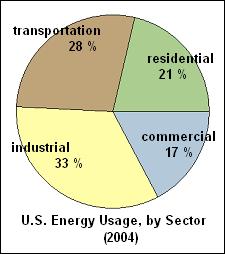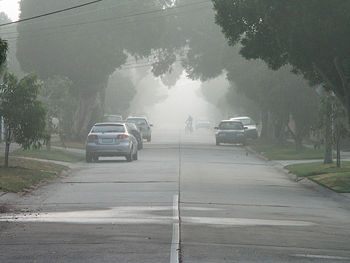- Air Homepage
- Global Warming
- Ways you can Prevent Air Pollution
45 ways to prevent air pollution and Breathe Safely Outdoors
Why do we want ways to prevent air pollution?
Here are some ways to fight air pollution 💨 - Do you know that the simple choices you make every day can make a big difference in the air you breathe? Use these easy ways to slash your personal emissions, from smart driving hacks to home energy secrets, so you can protect yourself against asthma and heart disease. And save a little $$ along the way.
What can we do about poor air quality? There are some simple ways to prevent air pollution that you might not even think of.
In order to reduce your personal contribution to air pollution, you might decide to take action. Start by researching the most efficient ways to reduce your carbon footprint and follow them or keep up with the latest developments in the field by joining local environmental groups.
There's a link between air pollution and asthma, respiratory illnesses, heart disease, and even cancer. If the amount of emissions from vehicles, factories, and other sources were reduced (see the pie chart), so would air pollution.
There are other ways to clean up the air, though they might be more work. The three lists below have a lot of ideas to help you find the right methods and techniques.
How can we reduce air pollution? By examining and addressing the most important factors contributing to this (or any) problem, we can solve it. Taking care of air quality issues in urban areas usually means dealing with transportation emissions. I can help you reduce your air impacts with dispersion modelling. Check out my air quality services.
Be a Smart Drive
What does this mean?
About half of the air pollution seen in cities comes from cars and trucks. We've identified two easy ways to prevent air pollution - drive less and be a smarter, more conservative driver.
Vehicle air pollution can be reduced by reducing the number and length of trips by car. Gasoline and diesel prices have been high at various times, so people have chosen to drive less for their summer vacations and also to drive less in town.
You can reduce your car's total emissions and driving expenses if you adopt a few smart driving habits. You can also prevent air pollution by:
- Carpool - take turns and save money on parking.
- Shop by phone or mail instead of driving - why waste your time?
- You can have a healthier, cheaper lunch at home if you telecommute regularly
- Accelerate gradually - the engine will last longer, too.
- Obey the speed limit - tickets cost even more than gas.
- Get regular tune-ups for your car - support the smog check program
- Make sure your car's air filter is clean - do other routine maintenance
- Shut off your engine while waiting for a train (or other long waits).
- Walk or ride a bicycle when feasible - or try one of those cool electric bikes for fun.
- Find ways to drive less, especially on days with bad air quality
- Ride public transit when possible - and use the time to get some reading done
- Use the cruise control when warranted - save leg cramps
- Make one trip to run all your errands - look for your keys only once
- Don’t overfill the tank at the pump - however, keep the tank at least half full between fills
- Here's a strange one - Spray your city's roads with sticky stuff to absorb pollution - London, UK has done this and it works well
- Keep tires properly inflated - the car moves better that way
- Drive slowly on unpaved roads to reduce road dust
- Use a fuel-efficient car - time to get a hybrid.
Here's another one you might like. If the air gets bad one day, drive your newest car. In general, they pollute less than older models.
How about saving energy at home? Air pollution can be prevented by reducing everyday air emissions.
You can reduce air pollution by saving energy (and money). Natural gas, gasoline, and electricity are all fossil fuels, so use them wisely and conservatively. In recent years, home electricity generation equipment has become cheaper and easier to get...check it out if you can.
Ways to prevent air pollution at home
What does electricity do to the air? In many parts of the world, it's the power plant that burns fossil fuels to generate electricity. Reduce your heat and energy consumption at home to prevent air pollution:
- When you leave a room, turn off the lights
- Whenever possible, purchase energy saving appliances and bulbs
- Replace old, inefficient appliances as soon as possible. If you need to fix them, replace them as soon as possible (or more).
- Add extra insulation to your house
- Use an EPA-approved fireplace insert or wood burning stove
- Insulate your water heater
- Dry your clothes on a clothesline anytime you can
- Use fluorescent or LED lighting where possible
- Use a thermostat that turns off your heater and air conditioner when you're not using them
- Use a fan instead of an air conditioner,
- Use a microwave to heat small meals
- Install low-flow shower heads
- Create your own electricity at home - Store it and use it later.
Beware of small stuff
Small particles can slip past the lungs' natural defenses when you breathe. There's soot, dust, and acid droplets. The tiny bits of matter are called particulates. To reduce the health impacts of this pollution, breathe through your nose as much as possible.
At its worst, particulate air pollution causes bronchitis, asthma attacks, and other lung diseases. Here are some ways to protect yourself and others from air pollution:
- If the air is bad, don't use your fireplace or wood stove
- You'll be able to control the volume and depth of your breathing if you avoid vigorous activity on days with bad air quality
- Don't use leaf blowers or anything that blows dust around. Instead, use a broom or a rake.
- Plant trees to clean the air. Make sure your trees are healthy too
- Same goes for house plants. Find out what types work best for your living space.
- Follow the rules when it comes to the environment
- Make sure you buy eco-friendly stuff
- Follow the company's environmental policies when you buy
- Catalytic converters and other eco-friendly stuff
- Stop smoking
- Paints, batteries, and electronics can all be recycled if they're not dangerous.
- Make sure your city's population growth is balanced and controlled
- How do professionals and industries prevent air pollution? By using air pollution modeling ahead of time.
Speak Up For Clean Air
We should all do our part to reduce air pollution, and knowledge of these Air Pollution Facts and Solutions might be helpful here. Anything you do here will make a difference. Improve regional and national air pollution standards with any civic influence you have (communication with leaders, etc.).
Write to your local newspaper about unhealthy air, or do research and publish it. You should also let your elected representatives know you support the Clean Air Act.
These ways to prevent air pollution can help a lot...especially if other people learn from you and follow your lead. You'd be surprised how versatile vinegar and baking soda can be when used for cleaning. You can find it online. Plus, it's cheap. Use electric or muscle-powered lawn mowers instead of gas, paint brushes instead of sprayers, non-halon fire extinguishers instead of traditional ones...I could go on. Operators can also help by reducing noise and light pollution from their facilities.
To identify and diminish the problems caused by industrial air pollution, you might need professional consulting. Contact the experts at Calvin Consulting Group Ltd. Give Barry a message here:
Finally, here's a great video on REASONS to prevent air pollution.
Need a few unique ways to prevent air pollution?
Want to see some common ones too?
The three lists partway down in this page will give you some simple strategies to reduce your environmental footprint.
Do you have concerns about air pollution in your area??
Perhaps modelling air pollution will provide the answers to your question.
That is what I do on a full-time basis. Find out if it is necessary for your project.
Have your Say...
on the StuffintheAir facebook page
Other topics listed in these guides:
The Stuff-in-the-Air Site Map
And,
Thank you to my research and writing assistants, ChatGPT and WordTune, as well as Wombo and others for the images.
OpenAI's large-scale language generation model (and others provided by Google and Meta), helped generate this text. As soon as draft language is generated, the author reviews, edits, and revises it to their own liking and is responsible for the content.
Read More about air pollution:
Air Pollution is Getting Better - in some cases.
Air pollution articles - for further reference
Air Pollution and Global Warming
- What's the connection?





New! Comments
Do you like what you see here? Please let us know in the box below.